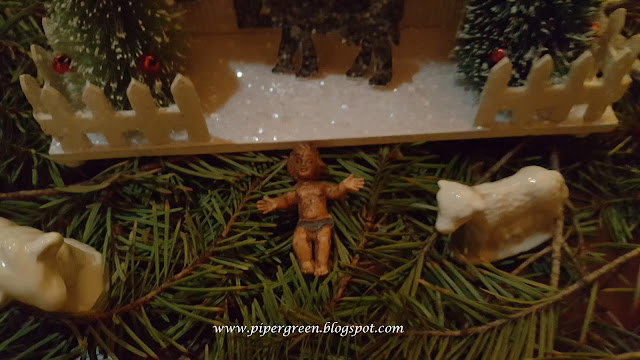I wrote to you in an earlier post that Christ did not begin to exist at His birth in Bethlehem. He has always existed; the Godhead Trinity are co-equal, co-eternal, one in essence, nature, power, action, and will; all uncreated, and all three are eternal without beginning. Jesus Himself told the Jews that “…Truly, truly, I say to you, before Abraham was, I am” {Jn. 8:58 NASB}, and He said in John 6:62, “What then if you see the Son of Man ascending to where He was before?” (NASB). Not only does Scripture affirm the pre-existence of Christ, but the earliest leaders of the church, from the Patristics to the Reformers, concluded that Scripture taught that Christ eternally existed with the Father (One of the greatest works being St. Athanasius’ On The Incarnation). His pre-existence is revealed throughout the Old and New Testaments, the prophets, and by Jesus Himself, which I will discuss all in later posts. Christ’s divine nature is the very same nature as the Father and the Holy Spirit. Christ, according to His divine nature is immutable, impassible, and neither lessened nor weakened by the incarnation.[1]

Another aspect of the nature of His pre-existence is that He is the Second Person of the Trinity. The implications of this are imperative to His pre-existence. Christ was not only human, but He also claimed to be equal with God; sharing the very same essence of the Father. Jesus prayed in John 17:5, “Now, Father, glorify Me together with Yourself, with the glory which I had with You before the world was.” This is a clear statement by Christ that He existed before the world. This means Jesus existed before His birth and was as God in nature and attributes.
There are several key events in Scripture that speak to the eternal Second Person of the Trinity. It is these events that solidify His pre-existence. We will examine these events in the next post with the appearances of Christ in the Old Testament.






































